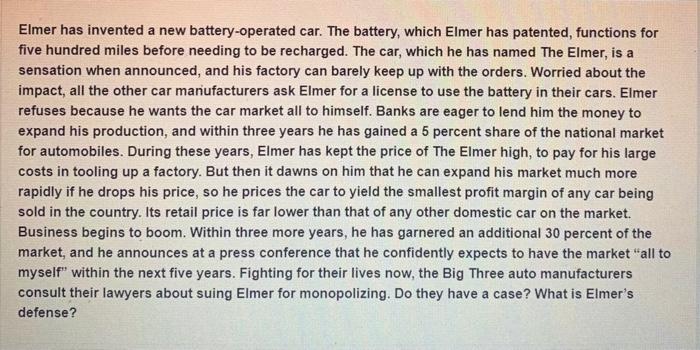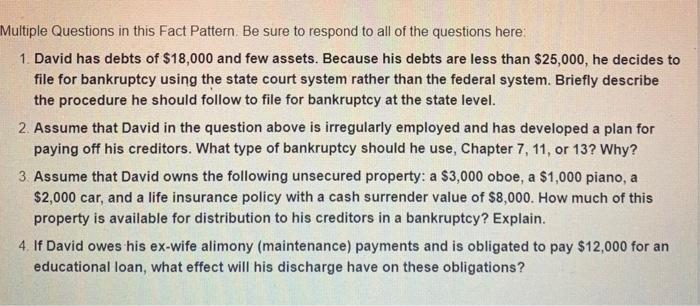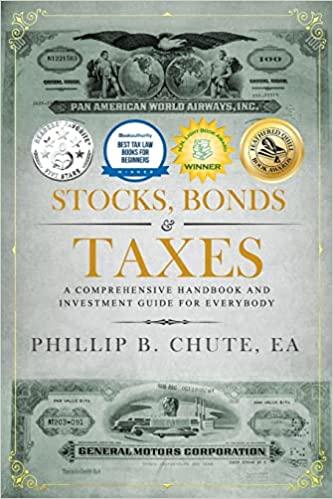Dennis likes to spend his weekends in his backyard, shooting his rifle across his neighbor's yard. If Dennis never sets foot on his neighbor's property, and if the bullets strike neither persons nor property, has he violated the legal rights of the neighbor? Explain. Elmer has invented a new battery-operated car. The battery, which Elmer has patented, functions for five hundred miles before needing to be recharged. The car, which he has named The Elmer, is a sensation when announced, and his factory can barely keep up with the orders. Worried about the impact, all the other car manufacturers ask Elmer for a license to use the battery in their cars. Elmer refuses because he wants the car market all to himself. Banks are eager to lend him the money to expand his production, and within three years he has gained a 5 percent share of the national market for automobiles. During these years, Elmer has kept the price of The Elmer high, to pay for his large costs in tooling up a factory. But then it dawns on him that he can expand his market much more rapidly if he drops his price, so he prices the car to yield the smallest profit margin of any car being sold in the country. Its retail price is far lower than that of any other domestic car on the market. Business begins to boom. Within three more years, he has garnered an additional 30 percent of the market, and he announces at a press conference that he confidently expects to have the market "all to myself" within the next five years. Fighting for their lives now, the Big Three auto manufacturers consult their lawyers about suing Elmer for monopolizing. Do they have a case? What is Elmer's defense? Multiple Questions in this Fact Pattern. Be sure to respond to all of the questions here: 1. David has debts of $18,000 and few assets. Because his debts are less than $25,000, he decides to file for bankruptcy using the state court system rather than the federal system. Briefly describe the procedure he should follow to file for bankruptcy at the state level. 2. Assume that David in the question above is irregularly employed and has developed a plan for paying off his creditors. What type of bankruptcy should he use, Chapter 7, 11, or 13? Why? 3 Assume that David owns the following unsecured property: a $3,000 oboe, a $1,000 piano, a $2,000 car, and a life insurance policy with a cash surrender value of $8,000. How much of this property is available for distribution to his creditors in a bankruptcy? Explain. 4. If David owes his ex-wife alimony (maintenance) payments and is obligated to pay $12,000 for an educational loan, what effect will his discharge have on these obligations? Lilliputian Department Stores advertises a "special" on an electric carrot slicer, priced this week only at $10." When customers come to the store, they find the carrot slicer in frayed boxes, and the advertised special is clearly inferior to a higher-grade carrot slicer priced at $25. When customers ask about the difference, the store clerk tells them, "You wouldn't want to buy the cheaper one; it wears out much too fast." What grounds, if any, exist to charge Lilliputian with violations of the FTC Act? McDonald's advertises a sweepstakes through a mailing that says prizes are to be reserved for 15,610 "lucky winners." The mailing further states, "You may be (a winner] but you will never know if you don't claim your prize. All prizes not claimed will never be given away, so hurry." The mailing does not give the odds of winning. The FTC sues to enjoin the mailing as deceptive. What is the result











